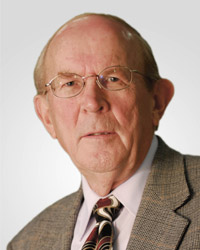
ISRAEL - AI Isn’t Too Smart, It’s Too Dumb
“There are companies testing hundreds of AI projects, but in the end, only a small number—just 6%, according to AWS (Amazon Web Services, H.W. and A.G.)—are actually launched. The main reason is inaccuracy of the models: they’re brilliant, but they sometimes generate complete nonsense. You can’t even recognize it, because within the large text you receive, there are errors and fabricated content hide,” said Prof. Yoav Shoham.
“My goal is to create the smartest AI in the world, that enterprises can use reliably, just as they trust traditional technology. If every organization in the world uses our software, that will be a success.
“Can machines compete with our intelligence? That’s a very open question. My opinion is that no one really knows. It’s worth thinking about. But from there to death notices for the human race, I think that’s a stretch.
“My guess is that in the short term, over the next 20 years, machines will increasingly empower us, allowing us to do things we couldn’t do before. We’ll stop doing some tasks because machines will do them better. That’s the nature of technology.
“My biggest concern is not that AI is too smart, but that it’s too dumb. It does amazing things, but it can also be as dumb as a rock.
“You have to take these rankings with a grain of salt. I know this well because I built the world’s leading AI index, the Global AI Vibrancy Rankings. Regarding the state comptroller’s report, I’ll say: we have a good starting point. We have excellent researchers in academia and good AI companies.”
-en.globes.co.il, 30 March 2025
Arno's Commentary
Although Professor Shoham is a notable authority on AI, he quite apparently has some doubts, particularly for the future. In brief, AI does not replace human intelligence. But AI will be a great contributor toward the global indoctrination of mankind.
A great percentage of global intellectuals openly say, “There is no God.”
Ray Kurtzweil, an American computer scientist, entrepreneur, futurist, and inventor, was asked the question: “Does God exist?” His answer: “I would say, not yet.”
On page 60 of Professor John Lennox’s book 2084, he writes: “On 14 November 2018, Stephen Shankland reported in CNET that the vice president of AI for Google’s iCloud had said the previous day that ‘AI is still very, very stupid. It is really good at doing certain things which our brains can’t handle but it is not something we could press to do general-purpose reasoning like analogies or creative thinking or jumping outside the box.’”
However, the near miraculous success of collective thinking by the world’s leading scientists continues to point toward a manmade god.
Bible believers know that man consists of spirit, soul, and body. The animal world has a soul and body, and vegetation only a body. Man can reason; animals cannot. Nor can material things, although that is what materialists believe: the original explosion, then material talking to material.
Regardless of the future of AI, it is the product of human intelligence. AI has no feelings; it does not know love or hate. It has no spirit; thus, has no fruit: “But the fruit of the Spirit is love, joy, peace, longsuffering, gentleness, goodness, faith, meekness, temperance: against such there is no law” (Galatians 5:22-23).
The current AI hype reminds us of Y2K in 1999, when alarmists the world over proclaimed doomsday, a coming catastrophe, since the original programmers provided only 2 digits for the year, and could not comprehend dates beyond 1/1/2000.
AI is the product of man’s God-given intelligence, but what is apparently overlooked is the fact that man can unplug AI. However, we must add that what AI produces—its product—is the danger, and will indeed progress toward the goal of the image of the beast.



